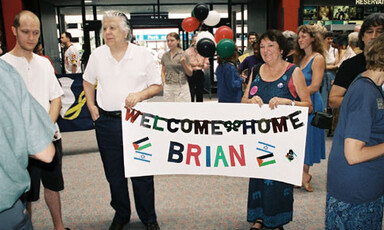
Rounding up the Arabs
13 June 2003
Among advocates of Arab-American rights in the US, the response to the proposed mass deportations has been significant. In an interview with Al-Ahram Weekly Ali Abunimah, vice-president of the Arab-American Action Network and co-founder of the Internet magazine Electronic Intifada, cautioned against the consequences of such draconian measures. “The fact that the government is moving to deport so many people will potentially harm efforts to fight terrorism, because it will erode trust in the government.” Read more about Rounding up the Arabs



